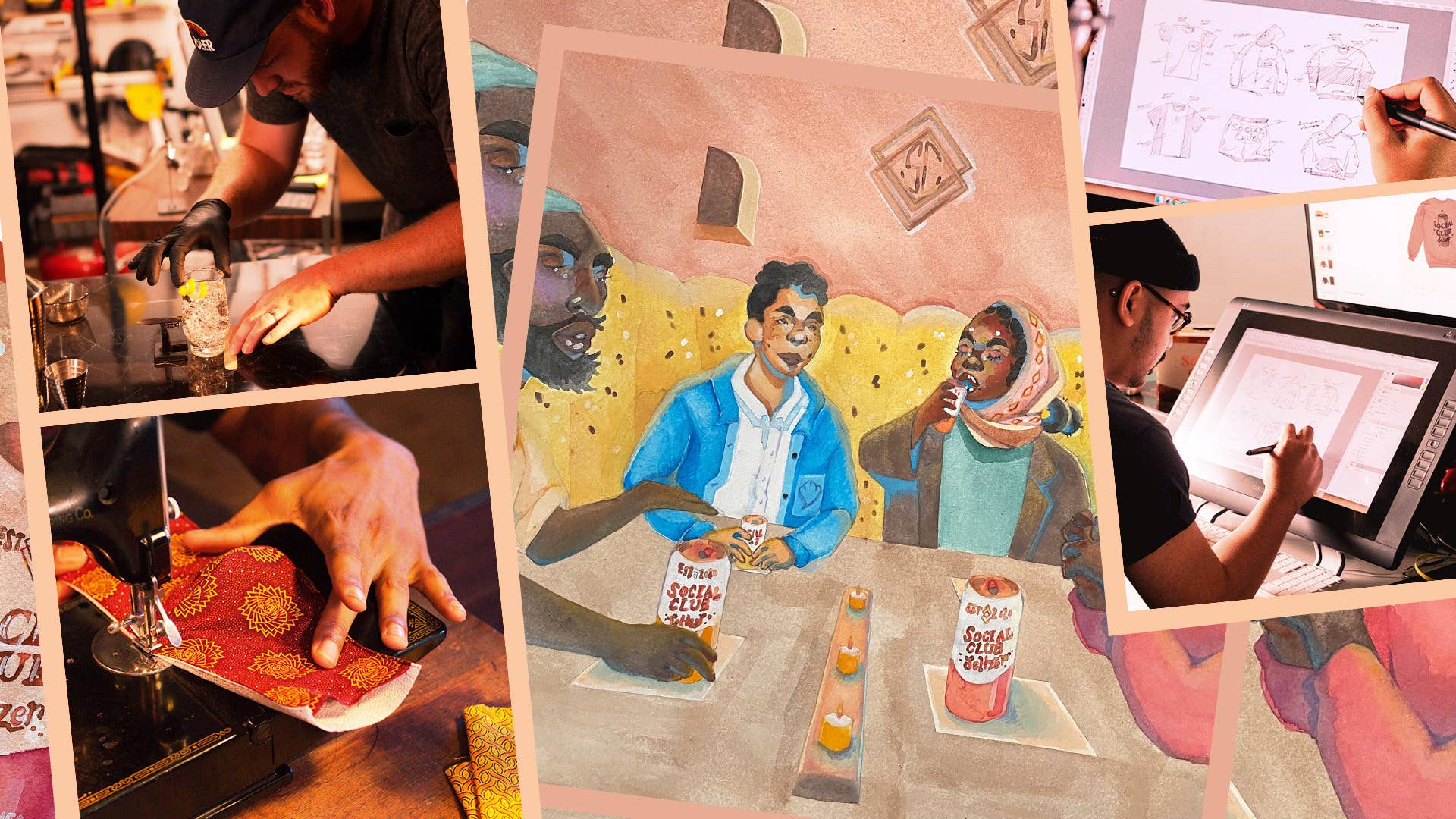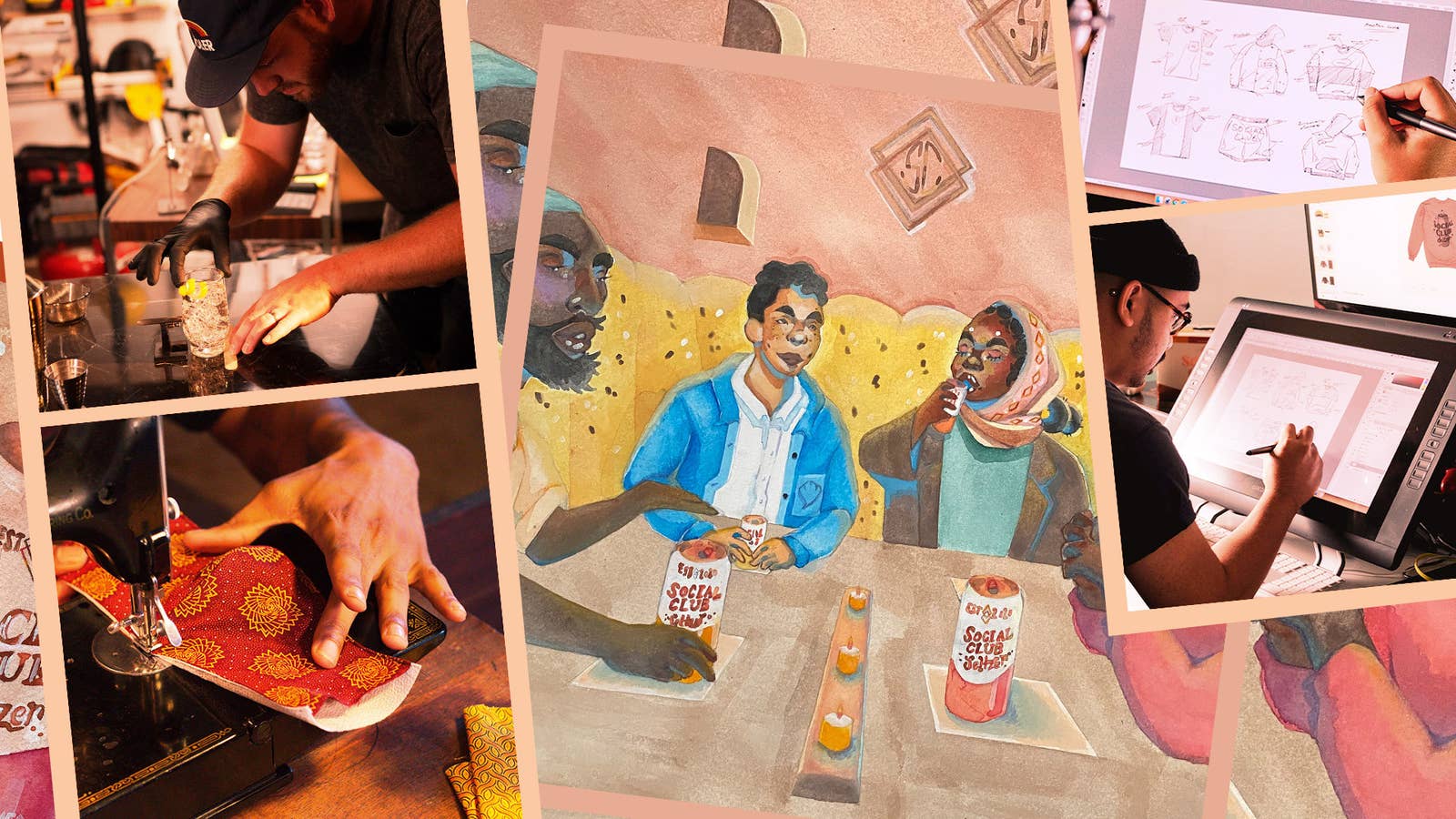
A famous adage says that the company you keep is a reflection of who you are. When it comes to the creatives who are part of hard seltzer brand Social Club’s ‘Create the Club’ squad of artists, designers, artisans, and makers, those wise words couldn’t be more true. That’s because Social Club selects Create the Club members from across the country to bring their own creative flavors to its products, specifically seeking to support creators who may have been affected by COVID to help build its brand.
To that end, Create the Club members represent a variety of disciplines, including illustrators, painters, videographers, photographers, writers, and more. “I think the cool thing about this community is we have all these creators working together,” explains Club member Eric Pagsanjan, a designer and illustrator. “Usually, you are next to somebody working with them, but in this case, we have this huge network of creators that are creating content, and we have this indirect community that we've already built.”
In addition to Pagsanjan, Create the Club recently added videographer and motion designer Jonathan Joiner, illustrator Chiomma Hall, and designer Edward Wycliff to its roster of talent.
All are multi-hyphenate creatives, pulling from the realms of culture, film, fashion, art, and design to share their crafts with the world. Although they come from different backgrounds, a common dedication to hustle and craft unites these creators.
“Social Club is about celebrating the hustlers,” says Hall, a queer, Black illustrator who created a series of paintings for Social Club. “Hustling is a large part of being a part of the [creative] community—hustling and being committed to your dreams and your goals.”
With those ideas in mind, Complex sat down with Hall, Pagsanjan, Wycliff, and Joiner, to learn more about what fuels their art and how they work to uplift their own communities in conjunction with Social Club.
Chiomma Hall: Painter and Illustrator
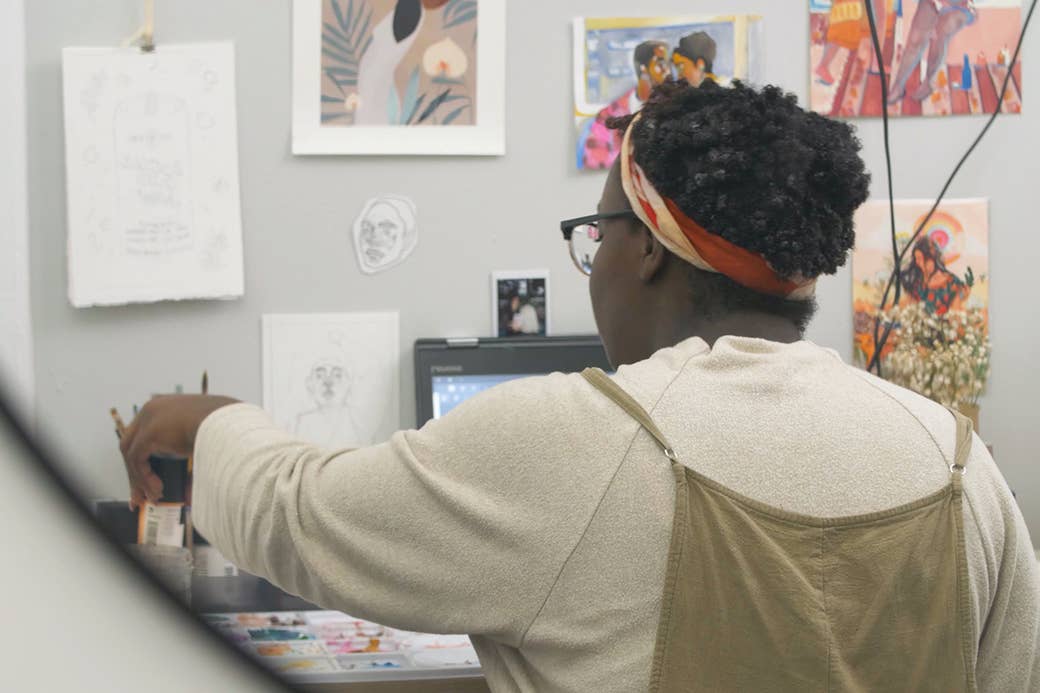
For Chiomma Hall, art has as much to do with belonging and claiming space as it does with creating beautiful imagery. The Florida-raised, Atlanta-based freelance painter and illustrator uses layered paints and rich colors and textures to build worlds where she not only represents herself as a Black queer creator, but that welcome an entire community of other creators of color to see themselves, too. Chatting with Complex this fall, Hall offered these insights into her artistic journey and career.
Hall On Her Creative Process:
My creative process is still a work in progress. Every new opportunity I get always starts with a bout of anxiety. It never feels real that someone has trusted me to commemorate something. It never feels real that these opportunities have come on to my plate. I'll give myself 24 hours to panic, just to get it all out there, and then I wake up the next day and I just always remind myself that if others believe in me, I should believe in me. And so once I say that, then I dive into making a cup of tea, sitting down, and mapping out the narrative that I intend to illustrate and if not, just figuring out figures. I think the first thing that I really do is try to always ask what kinds of emotions an individual wants displayed in their work, or I'll ask about their relationship to this thing to get a better idea.
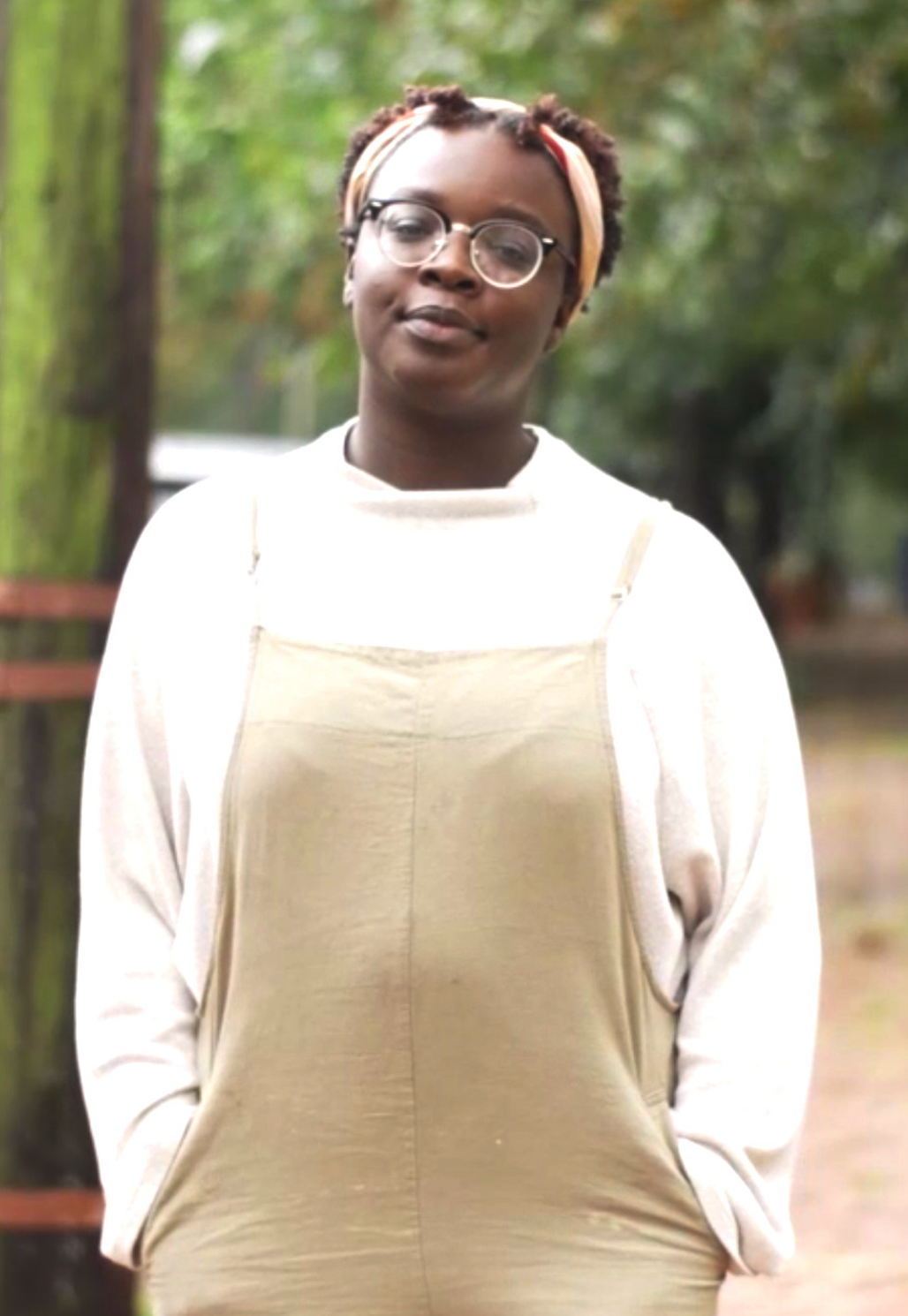
Hall On Her Advice for Other Artists:
Something that has stuck with me from speaking with other creatives and personal mentors is never assume what is in anyone else's wallet, never be afraid to raise your rates and to charge more, especially for individuals who are trying to access you. You are important, your mental health is important, your body is important, and I would love for people to always be able to live the way that they want to, and to be supported by their craft. Within creative practice, it’s important to always be challenging yourself in your creative process into things that you do, but also know that you don't have to share everything with the world, you don't always have to share your work.
Hall on Creating Spaces for Her Experience of Blackness:
Eric Pagsanjan: Artist and Graphic Designer
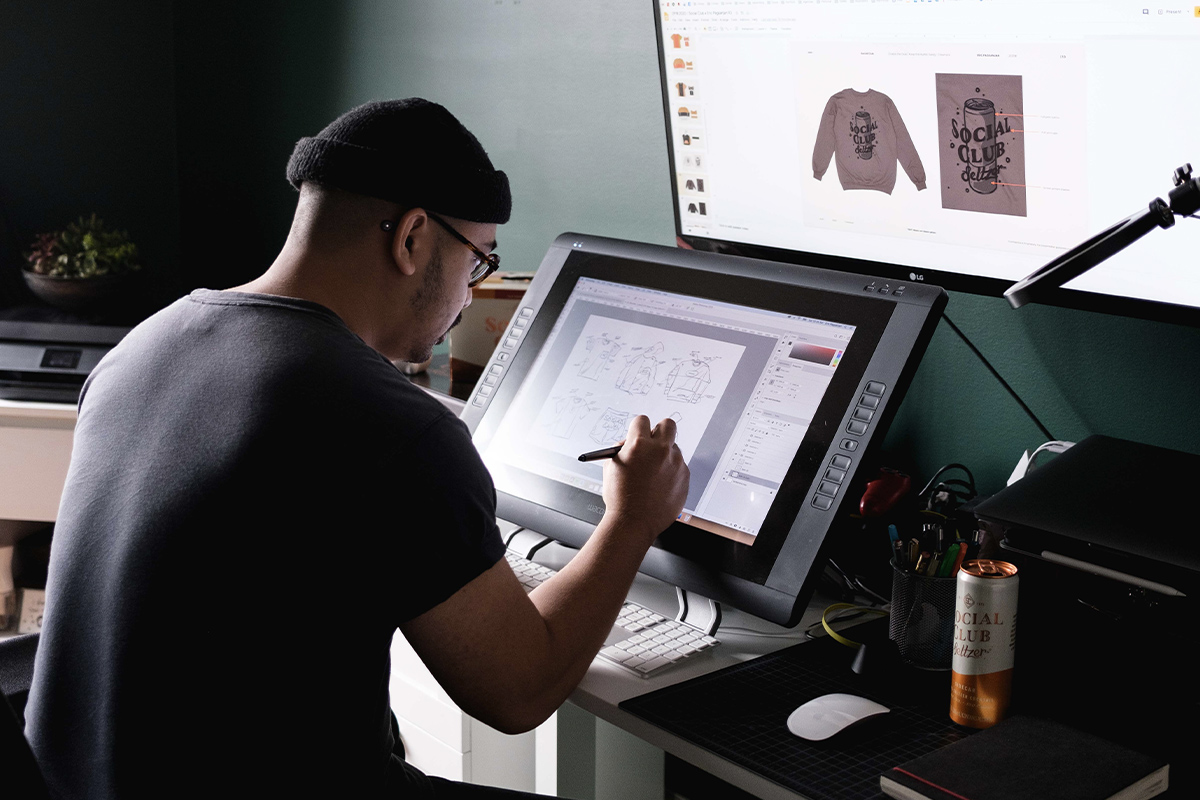
In Eric Pagsanjan’s world, life has always imitated art. Starting out, the Chicago-raised illustrator and designer channeled his passions for basketball and sneakers into a creative career in advertising before heading out on his own. Now, Pagsanjan gives back to his hometown through his series of SneakerHeroes illustrations, which have helped garner attention from big brands willing to donate sneakers to needy Chicagoans. Not long ago, Pagsanjan took some time to talk to us about his life, working with Social Club, and how those things have propelled his creative journey.
Pagsanjan On Forging His Own Creative Path:
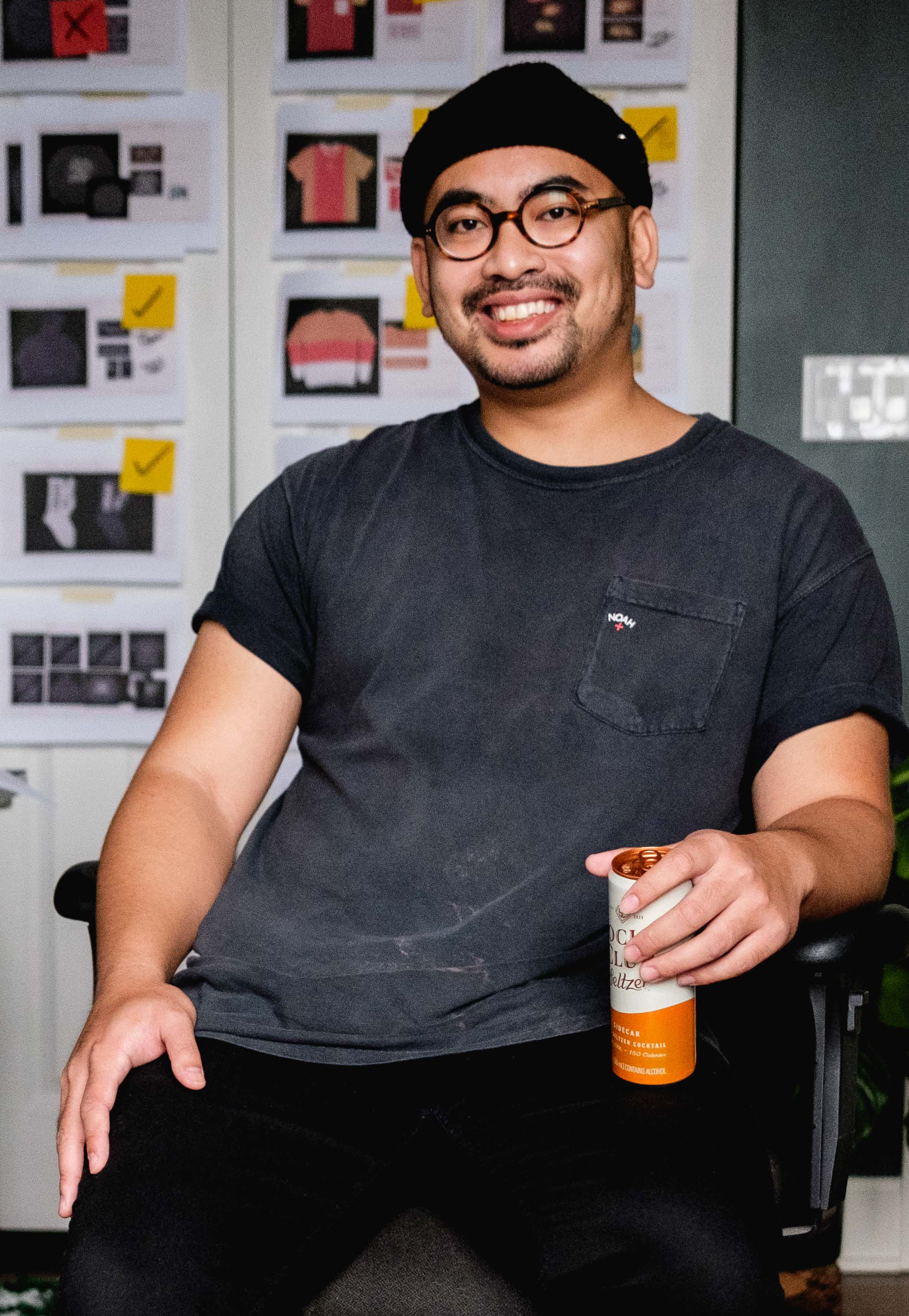
Looking back at my journey into advertising, I did not know what I was getting myself into. There weren't many resources or information on how to actually break into the ad world. I wish there were more Filipinos in the industry that I could look up to, that could possibly point me to a path of how to be successful. But as I started going to portfolio school, I realized that I was forging my own path, a brand new path that I haven't seen anyone else do, or at least been able to see. Being in a corporate setting, it was hard to relate to a good amount of my coworkers, but that didn't really stop me from learning from them and getting to know them even better. I was often the only Asian creative in the room, and that was something I started to recognize more and more.
Pagsanjan On What Fuels His Art:
Everything has a story behind it, and I've recognized how powerful my own story can be. I went through some heavy losses in my family, especially with my brother and his wife passing away about a week after their honeymoon and my dad a few years ago when he was visiting the Philippines for the first time since I was born. I tried to channel their stories into everything I do. By creating art, I'm able to start that first conversation about my own work and then I can dive into how I treated art as a form of therapy to get through all those tough times.
Pagsanjan On the Power of Telling His Own Story:
Edward Wycliff: Fashion Designer and Entrepreneur
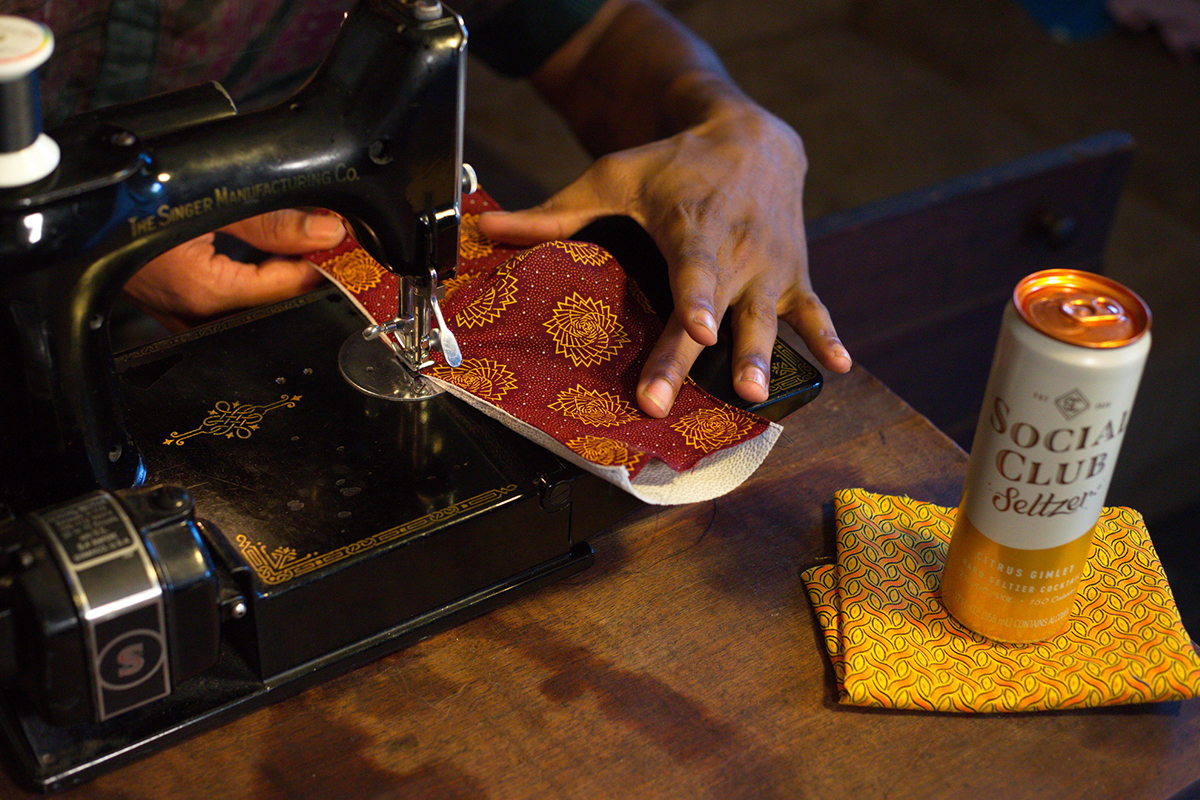
Edward Wycliff is the founder of the Bow Shoeshoe accessory line. And despite Bow Shoeshoe’s polished, professional look, Wycliff actually got into design by accident. What started off as a stint as Peace Corps volunteer in Lesotho, a small kingdom in Southern Africa, led Wycliff to starting a business that builds bridges between Black communities from different continents. Seeing an opportunity to empower Lesotho’s citizens, the Houston-born, New Orleans-based bow-tie designer kicked off Bow Shoeshoe by teaching them to sew classic items like bow ties, neckties, handkerchiefs, and now masks, with traditional fabrics before importing them and selling them in Louisiana. Speaking to Complex recently, Wycliff described that process and how purpose informs his creativity.
Wycliff On Finding His Creative Passion:
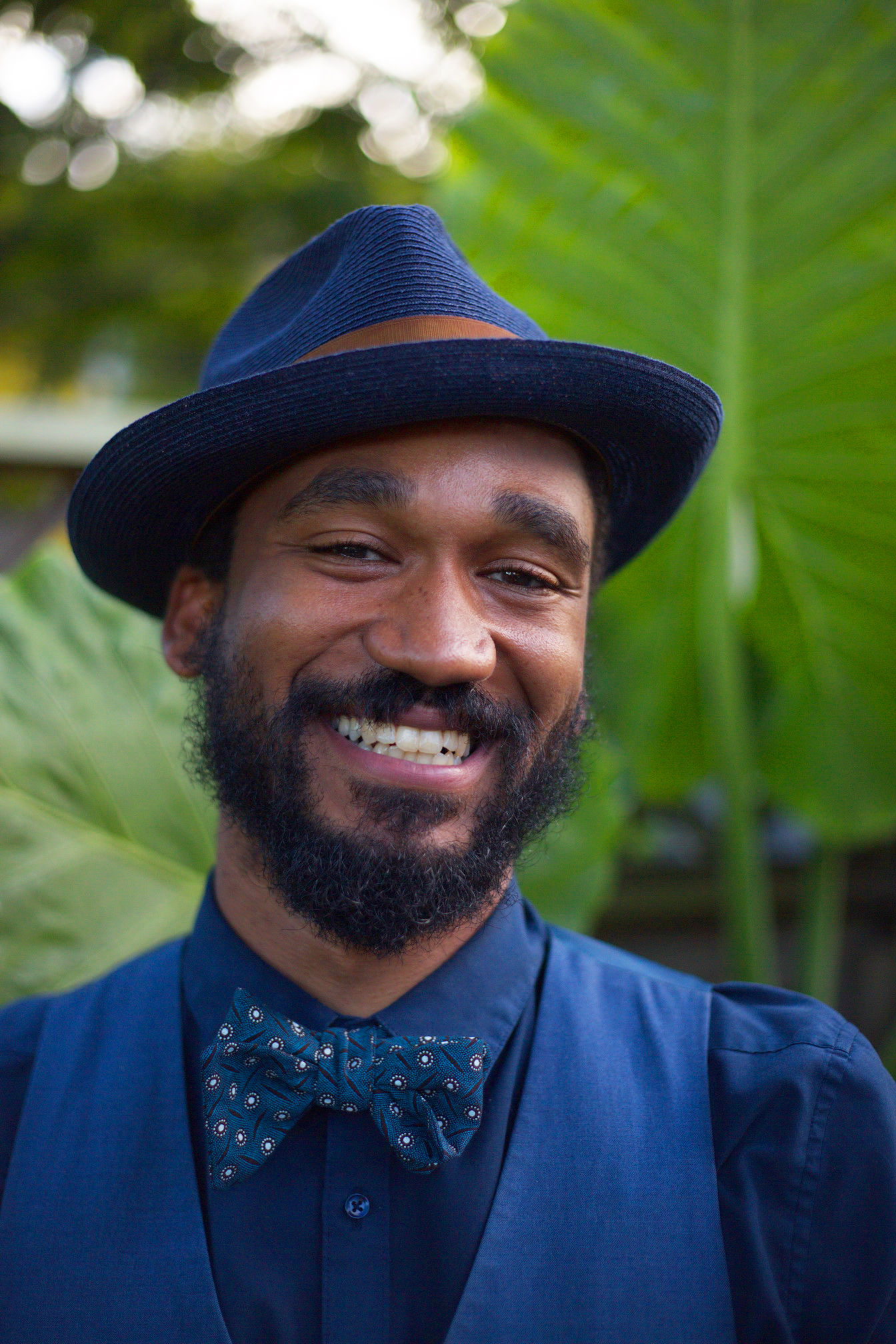
I had absolutely no interest in design. I had no interest in fashion. I had never worn a bow tie before I sewed my first one. I saw it as a means to an end, a means to create some opportunity for some people in the community that I had fallen in love with. My background is in conflict resolution and I realized there were many people without opportunity and without something to do. So I trained the village that I was working with how to sew my designs after training myself to produce them, as well. All as a means of creating economic opportunity for people in a part of the world with the highest HIV rate, as well as one of the highest poverty rates. But since starting it and realizing how you can create pretty much anything, I have found my passion for the craft that I seem to have stumbled into.
Wycliff On Privilege and Purpose:
I'd like people to see me and my work as more than me, because I'm definitely not the focal point of this business. I'm simply using my privilege, my placements, to create a story that brings in a community bigger than me. I want people to see I'm bridging these communities that I love so much, New Orleans and Lesotho, trying to close the gap between them to create something that folks on this side of the world haven't seen before, but most importantly, creating opportunities for people that need them way more than I do.
Wycliff On Starting His Business:
Jonathan Joiner: Maker, Builder, and Creator
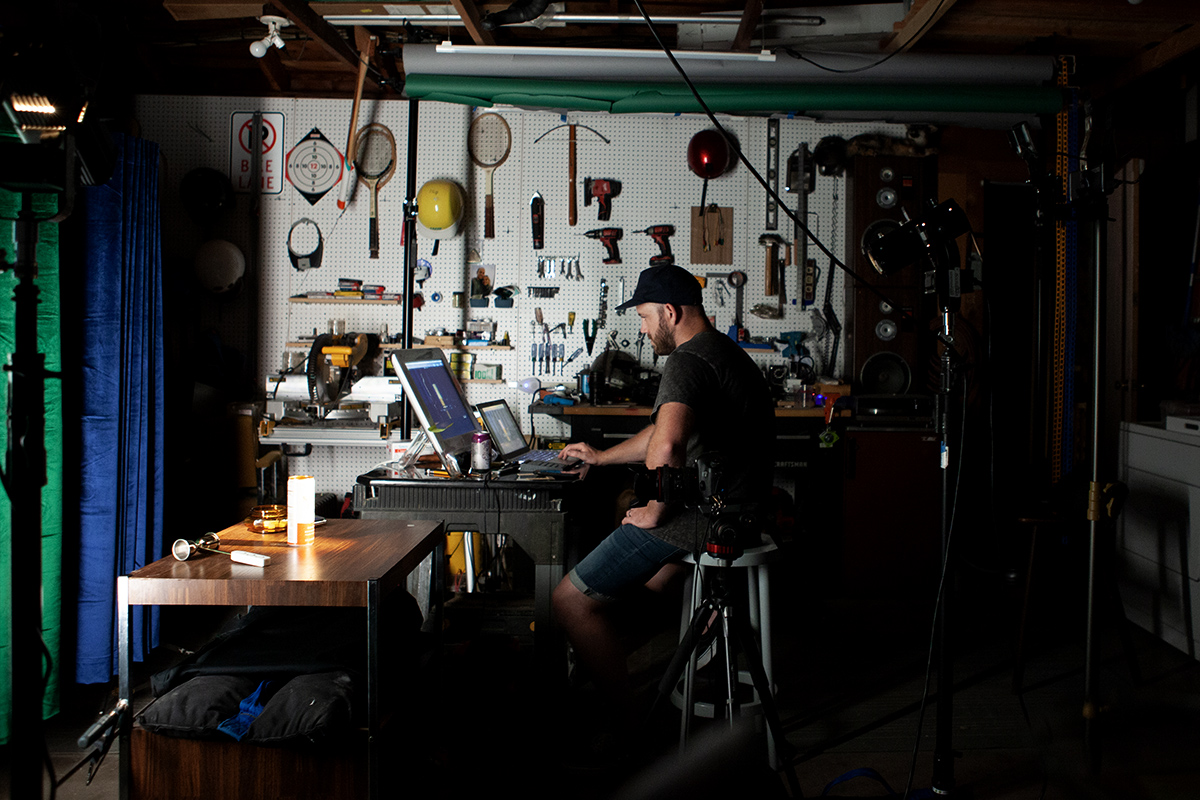
Jonathan Joiner is what you might call a “surround sound” creative. The Sacramento, Calif., native does a little bit of everything—he’s a videographer, motion designer, animator, set builder, and 3D photographer. He attributes his range of skills to a childhood spent taking things apart and putting them back together to figure out how they worked. With a specialty in stop-motion video and a creative style marked by intricacy, nostalgia, and a delicate humor, Joiner is a true craftsman for the people. When we spoke with Joiner earlier this month, this is what he had to say about his creative process and his work.
Joiner On His Creative Mindset:
After working a few years in the creative industry, I feel like there is a point where you start to feel this burnout, or this feeling of, Am I actually creative? Can I actually do this work? I started reading a lot of different books about, not creativity, but more of how to grow as a person. I remember reading Ego Is the Enemy by Ryan Holiday, and one thing that I took from that book that I've started to apply to my creative work and how I live my life is: always have a mentor, always be teaching somebody, and always be learning. One thing that I've tried to do is always in any type of job, whether it's a super fun job for this cool client or something less cool, there's always a way to grow and learn something. There's always an opportunity to take something from that.
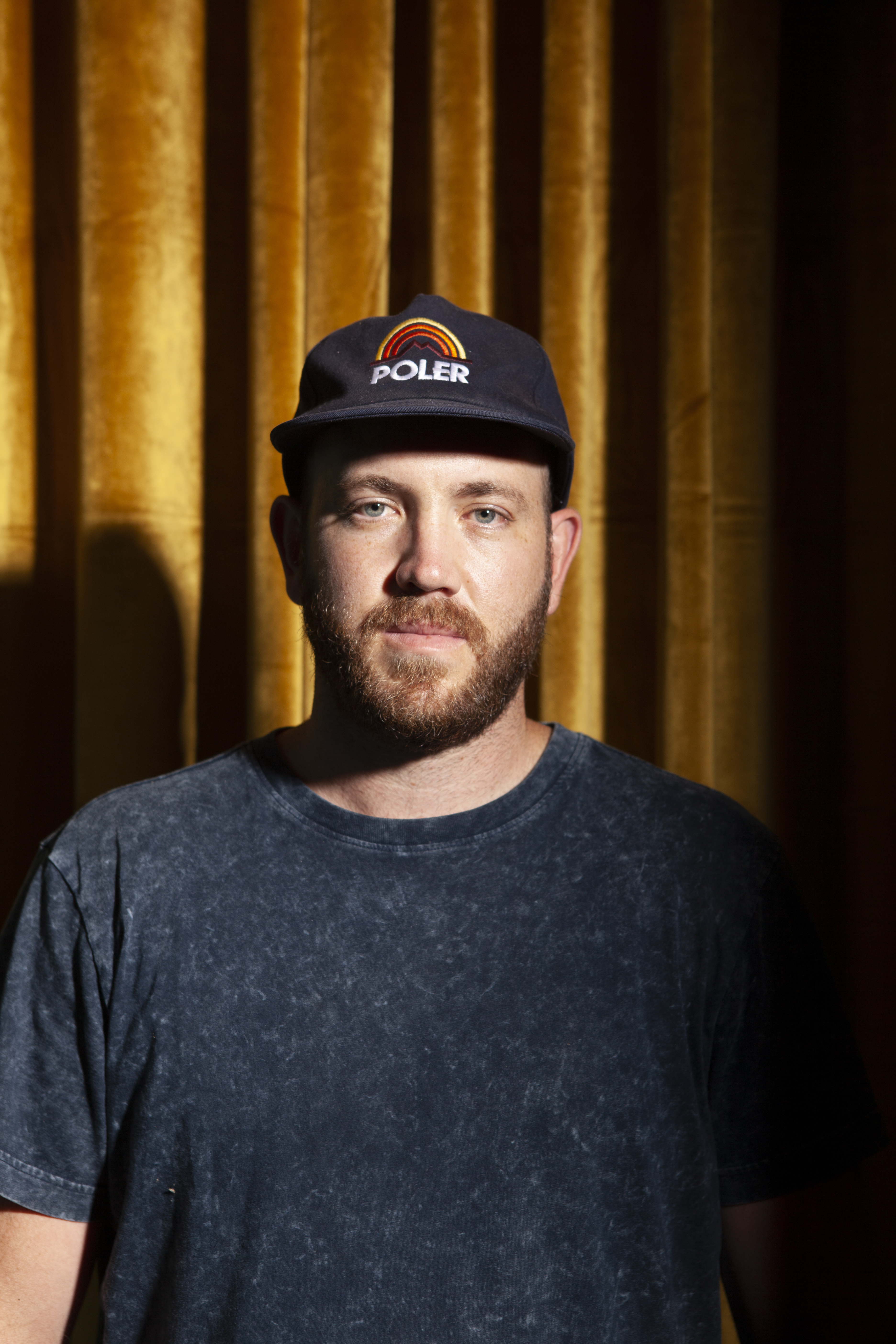
Joiner On Growing With a Community:
For me, a creative community is people that love creating and have a creative drive. What's important about having a creative community is you can be honest with each other, share work, get feedback, talk about problems, and you have that trust. Having any sort of community is important, because you have different people with different perspectives and experiences that you can learn from. A community is a way to grow, and if you don't have community, you're not really going to grow in yourself as a person.
Joiner On His Approach to Life:
Learn more about our Create the Club program here.

